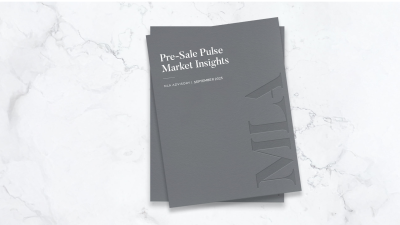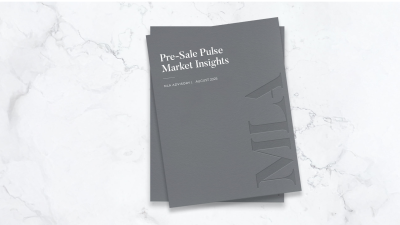As the real estate market continues to evolve, the pre-sale market stands out as a beacon of stability and promise. In this article, we delve into the key factors that have fortified the presale market's resilience and explore the reasons behind its expected strength in the upcoming quarters. While the broader real estate landscape faces uncertainties, presale properties offer both homebuyers and investors a unique opportunity to secure their future at favourable terms.
Navigating Interest Rates
Interest rates are a critical component that can shape the real estate market. Our analysis considered multiple hypothetical scenarios - a single interest rate hike and a more drastic scenario involving three interest rate hikes. Our expectations remain confident that the pre-sale market will remain advantageous for home buyers when considering various markets. This can be attributed to the way that presale properties are secured. A presale purchase today requires a deposit to secure a home. It does not require a mortgage until completion of the property, typically between 24 to 48 months from the initial investment. Current market trends suggest that interest rates are expected to decrease within a 12-to-18-month timeline. This anticipated drop in interest rates, combined with the timeline for the completion of pre-sale purchases, means home buyers are likely to experience an affordable rate environment by the time of completion. Therefore, even with potential short-term interest rate fluctuations, the opportunity to lock in a price today, and financing tomorrow, continues to fuel demand for pre-sale properties. This unique aspect fortifies the attractiveness of the pre-sale market amidst potential market volatility.
Adaptability in Economic Conditions
The pre-sale market's resilience owes much to the prudent measures implemented by the Canadian government, including the stress test and extended amortization periods. These measures have shielded a substantial portion of buyers from financial challenges, enabling them to actively participate in the market. Unlike previous cycles, distress selling is notably absent, creating a tighter inventory and driving price appreciation, which bolsters the confidence of both buyers and developers.
Changing Buyer Sentiments
While interest rates are a key driver, buyer sentiments also play a pivotal role in the pre-sale market's continued success. The shift in preference from luxury homes in unaffordable urban centers to more reasonably priced properties in farther regions has led to sustained demand for presale opportunities. Families seeking value for their investment are now expanding their search beyond traditional urban centers, stimulating demand in suburban and exurban areas.
Charting the Course for Pre-sale Pricing
We anticipate a sustained shortage of affordable inventory, further intensifying the upward pressure on pre-sale prices. Buyers are increasingly willing to pay a premium per square foot to secure their homes at today's interest rates, recognizing the long-term financial benefits this affords. The aging community is expected to play a significant role in the coming months, with the demand surge resulting from the last accessible inventory purchased in previous years.
Predictions for the Pre-sale Market:
- Construction Costs as the Baseline: Escalating construction costs will necessitate developers to re-evaluate minimum sale values for pre-sale properties. Material costs, labour shortages, and supply chain disruptions may prompt adjustments in pricing to ensure project feasibility while maintaining profitability. Consequently, pre-sale property values may see upward adjustments reflecting increased development costs.
- Interest Rate Hikes as a Long-Term Hedge: The expected interest rate hikes in the near term will serve as a catalyst for buyers seeking to hedge against higher future interest rates. Presale purchases become an attractive option for savvy buyers to lock in today's lower rates, providing financial security and protection against potential interest rate fluctuations.
- Immigration-Driven Demand: Canada's robust immigration policies will continue to drive demand for pre-sale properties. The influx of new immigrants seeking housing and investment opportunities will create a consistent stream of buyers in the pre-sale market, particularly in metropolitan areas offering amenities and employment prospects.
- Limited Construction Impacting Supply: The scarcity of new construction projects will substantially impact the supply of available pre-sale units and long-term housing stock. Delays in construction due to rising costs, labour shortages, and regulatory challenges may lead to reduced inventory levels. This may result in increased competition for existing pre-sale properties, driving potential price appreciation and heightened demand.



